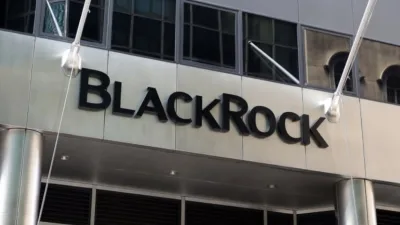Why BlackRock is rethinking bonds this year



According to BlackRock, it’s time to re-evaluate the role of bonds in the current inflationary market, with the firm starting by slashing fees on its iShares bond exchange-traded fund (ETF) offering.
In February, the world’s largest asset manager cut the annual rate for its Australian-listed fixed income ETF, reducing its iShares Core Composite Bond ETF by 5 basis points to 0.1 per cent.
Tamara Haban-Beer Stats, iShares ETF and index investments specialist in Australasia, explained that the firm’s bond ETF offering provided investors with broad exposure to the Australian bond market, including government bonds, investment-grade corporate bonds, and kangaroo bonds.
“That’s one way of getting fixed income allocation and that’s excellent. There are also multiple slices of the bond pyramid that are accessible to you now through iShares ETFs and ETFs more broadly,” she told Money Management.
Of its 40 locally listed ETFs, 11 were fixed income offerings, she said.
Additionally, across its products globally, iShares had seen year-to-date net inflows into fixed income as a broad asset class of over US$30 billion ($44 billion), compared to outflows of US$11 billion from its broad equity exposures as of end of March.
All this certainly supported the call that bonds were back, Stats added.
“The reality is, it feels like there are signs that a slowdown is coming, that economic activity is starting to be dented. If you subscribe to that view, one way you can express that is by investing in longer-duration assets.
“When it comes down to the investment strategy from iShares, short-end makes sense from an income perspective; long-end also makes sense to add ballast to your portfolios, so we really like fixed income across the curve for different reasons. We think it has a massive role to play.”
With the proliferation of ETFs both globally and in Australia, Stats believed firms like BlackRock were able to focus on core exposures in investor portfolios.
According to recent research, some 42 exchange-traded products had been launched in the last 12 months, and the industry was expected to reach a record $200 billion in the next three years.
Stats said: “We’ve got 40 [products], Vanguard has 29, BetaShares has 75, everyone’s got kind of a different cadence of launching products.
“Where we come in, we would focus more on the core building blocks that we feel play an important part in portfolios.”
Recommended for you
Australian equity ETFs attracted record inflows of $3.2 billion in 1Q25, while heightened volatility led to a decline in flows for global equity ETFs, according to Vanguard.
The failure of a clinical trial by biotech firm Opthea has caused shares in its backer Regal Partners to decline 52 per cent year-to-date and hit its funds under management, quarterly flows show.
GQG Partners has revealed its quarterly flows for the first three months of 2025 were up 5.8 per cent, after a difficult final quarter of 2024 as a result of institutional redemptions.
Global asset manager Janus Henderson has signed a strategic partnership with life insurer Guardian Life, which will commit US$400 million to accelerate the firm’s fixed income development plans.















